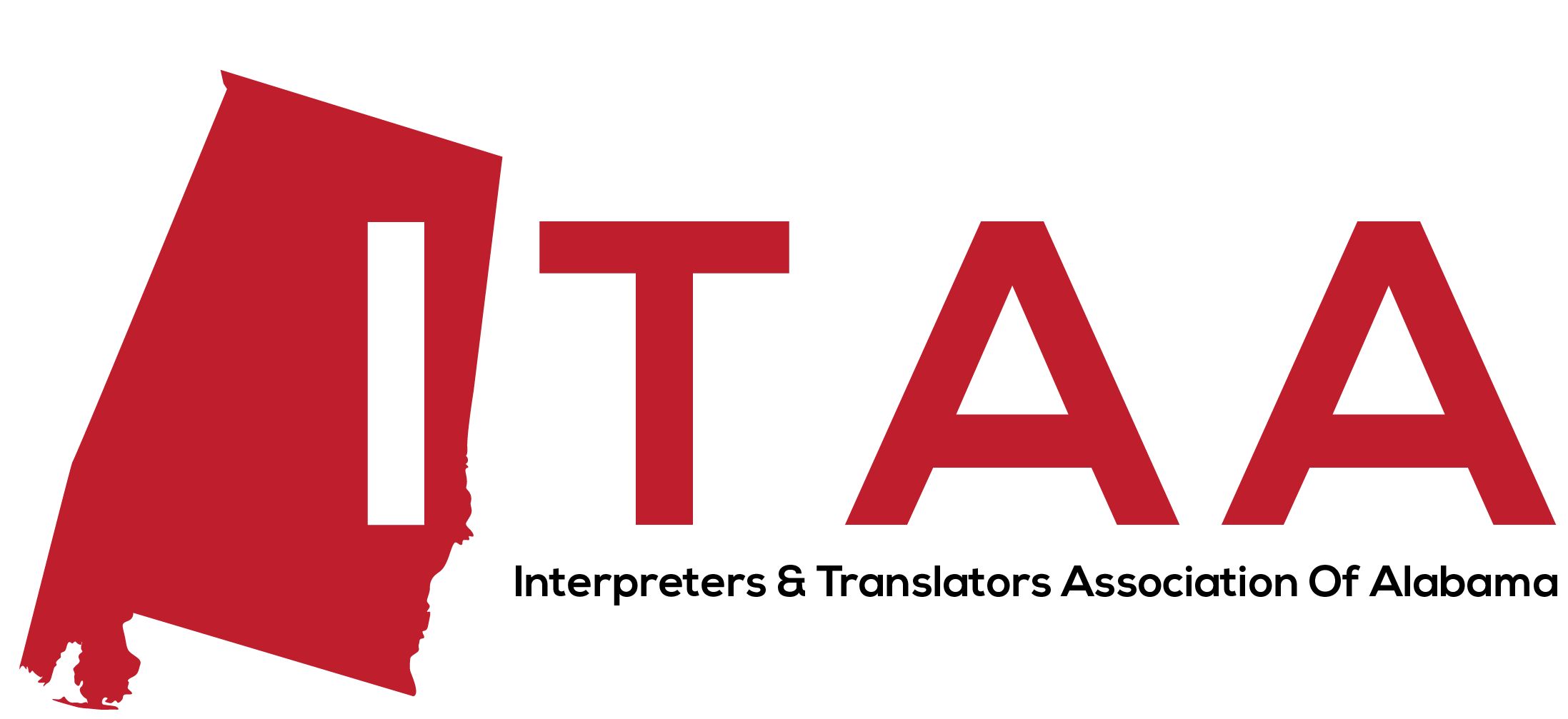THE NATIONAL BOARD OF CERTIFICATION FOR MEDICAL INTERPRETERS (NBCMI)
The mission of the National Board is to foster improved healthcare outcomes, patient safety and patient/provider communication, by elevating the standards for and quality of medical interpreting through a nationally recognized and validated certification for medical interpreters.The CMI certification program is governed by the National Board of Certification for Medical Interpreters (National Board), an independent division of the International Medical Interpreters Association (IMIA). The purposes of the National Board are to:-Develop, organize, oversee and promote a national medical interpreter certification program in all languages.-Promote patients and providers working with credentialed medical interpreters who have met minimal national standards to provide accurate and safe interpretation.-Ensure credibility of national certification by striving to comply with national accreditation standards including transparency, inclusion, and access. The Board of Directors of the National Board consists of 12 voting members that include medical interpreters, a health care provider, industry representatives, and a public member. Initial Board members were selected by a public process and independent selection committee. Subsequently, Board Directors are recruited through a Nominating Committee process and are elected by the members of the National Board.
CERTIFICATION COMMISSION FOR HEALTHCARE INTERPRETERS (CCHI)
The vision and long-term goals of CCHI are clear and credible. CCHI commissioners brought together the necessary stakeholders through a non-profit organization whose main mission is to develop and administer a national, valid, credible, vendor-neutral certification program for healthcare interpreters.
CCHI serves the current and future needs of healthcare interpreters and the stakeholders (healthcare providers and institutions, language services agencies, government agencies, and patients) who are counting on us to provide a trained, qualified, certified and competency-based population of healthcare interpreters.
CCHI programs include the Core Certification Healthcare Interpreter™ (CoreCHI™) and Certified Healthcare Interpreter™ (CHI™) certifications.
CCHI is the first organization certifying healthcare interpreters to receive NCCA accreditation.
The National Commission for Certifying Agencies (NCCA) accredited the CoreCHI™ Certification and the CHI™-Spanish Certification affirming that the exams were developed in compliance with the NCCA’s Standards for the Accreditation of Certification Programs. This is an outstanding achievement, strong and clear recognition of CCHI’s leadership and great news for healthcare interpreters, healthcare providers and other stakeholders. For example:
- Healthcare providers utilizing CHI™-Spanish certified interpreters can be confident that they meet their Joint Commission accreditation requirements.
- CHI™-Spanish certification holders can be proud that their certification now has the same professional status as nurses, respiratory therapists and other NCCA accredited certification programs.
According to the U.S. Census, more than 25 million people speak English less than very well and may be considered limited English proficient (LEP).
Healthcare providers across the country are increasingly treating LEP patients. According to reports commissioned by the National Health Law Program:
- 80% of hospitals encounter LEP patients frequently
- 81% of internal medicine physicians treat LEP patients frequently
- 84% of federally qualified health centers (FQHC) provide clinical services daily to LEP patients.
With such a diversity of needs, how do healthcare providers and coordinators of interpreting services assess the competency of interpreters across a wide variety of languages in a valid, consistent and reliable way? Until now, the healthcare system has been relying on the only thing available—a system of interpreter referrals or dependency on the interpreting services vendors who have their own corporate training and suite of specific services.
AMERICAN TRANSLATORS ASSOCIATION
ATA is a professional association founded to advance the translation and interpreting professions and foster the professional development of individual translators and interpreters. Its 11,000 members in more than 90 countries include translators, interpreters, teachers, project managers, web and software developers, language company owners, hospitals, universities, and government agencies.
Association membership is available to individuals (Active, Corresponding, Associate, Student) and organizations (Corporate, Institutional).
ATA OFFERS A VARIETY OF PROGRAMS, BENEFITS, AND SUPPORT SERVICES.
- Annual Conference. The largest ATA meeting, this conference is held every fall in a major city in the U.S. The meeting showcases workshops, educational sessions, exhibitors, a job marketplace, and networking events.
- Certification. ATA offers a certification exam to translators in 26 language combinations. Becoming ATA certified allows translators to document their abilities objectively in a specific language combination.
- Professional Development. The Association organizes an annual series of seminars and mini-conferences throughout the U.S. to provide advanced education and training in diverse specialties and languages.
- Honors and Awards. To encourage, reward and publicize outstanding work done by both seasoned professionals and students of the craft, ATA presents several awards and scholarships during the Annual Conference.
- Divisions. Through 18 specialty-specific divisions, ATA provides a way for members with common interests to network more effectively. The divisions offer newsletters, online forums, seminar and conference presentations, and networking sessions.
- Local Groups. ATA chapters and affiliates provide regional information, marketing, networking, and support services to local translators and interpreters.
- Client Education. The Association has developed publications, reports, and surveys to educate customers of translation and interpreting services about the value of using professional translators and interpreters.
STATE OF ALABAMA COURT INTERPRETER CERTIFICATION
An individual who wishes to provide foreign language interpreter services in Alabama’s courts must register with the AOC by completing and returning a Foreign Language Interpreter Registration Form, a Criminal Background Check Form, and an E-Verify Form (this form must be notarized) to the AOC attention FLIP (See Exhibit 1).
After an interpreter properly registers with the AOC, the interpreter’s name and contact information is listed on the AOC’s internal, non-published Foreign Language Services Registry. Once the interpreter passes the written exam and attends an orientation seminar their name and contact information is added to the website registry where it is available to Alabama’s courts, attorneys and the general public.
The following information outlines the steps necessary in becoming a certified interpreter for Alabama’s courts:
1. REGISTRATION AND BACKGROUND CHECK
An interpreter must register with the Administrative Office of Courts by completing and returning (1) the registration form and (2) the criminal background check form. (A Registered Interpreter is paid $25/hour). (See Exhibit 1).
2. WRITTEN EXAM AND ORIENTATION SEMINAR
After registration, a registered interpreter must pass the written exam and attend an interpreter orientation seminar. After passing the written exam and attending the interpreter orientation seminar, the interpreter is recognized by the AOC as a Conditionally Approved Interpreter and is paid $30/hour.
3. ORAL CERTIFICATION EXAM UPON PASSING THE WRITTEN EXAM, ATTENDING AN INTERPRETER ORIENTATION SEMINAR AND TAKING AND PASSING THE ORAL CERTIFICATION EXAM, AN INTERPRETER WILL BE RECOGNIZED BY THE AOC AS HAVING ACHIEVED ONE OF THE FOLLOWING INTERPRETER CERTIFICATION LEVELS:
- Journeyman Interpreter A Journeyman Interpreter has scored 60% or higher on the oral exam and 55% or higher on the sight translation portion of the exam. (A Journeyman Interpreter is paid by the State at the rate of $35/hour).
- Certified Interpreter A Certified Interpreter has scored 70% or higher on the oral exam and 65% or higher on the sight translation portion of the exam. (A Certified Interpreter is paid by the State at the rate of $40/hour).
- Certified – Master Level Interpreter A Certified – Master Level Interpreter has scored 80% or higher on the oral exam and 80% or higher on the sight translation portion of the exam. (A Certified – Master Level Interpreter is paid by the State at the rate of $45/hour).

